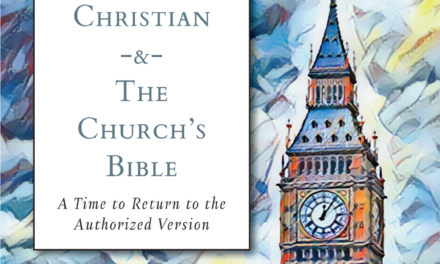Sir Edward Leigh (1602-1671)
“Lawyers, from whom the use of the word Authentick seemeth borrowed, do call those instruments and writings Authentick which have a certain and just authority in themselves…” [continued below]

Now we must enquire which is the Authentical Edition of holy Scriptures, it being necessary that this heavenly truth committed to writing, should be delivered in some form of words, and in some language which may be understood. Lawyers, from whom the use of the word Authentick* seemeth borrowed, do call those instruments and writings Authentick which have a certain and just authority in themselves.
A Book or writing is Authentick either by Divine or humane institution; those are by Divine Appointment and Institution authentical, which have from God sufficient and absolute Authority to command and approve themselves worthy credit and faith, in as much as God himself doth approve them; by humane Institution such writings are held authentical, which by the opinion and sentence of learned men in their several professions may be esteemed worthy credit and belief for themselves, and for the truth in them.
There is a great diversity of Editions of holy Scripture; all cannot be simply and perpetually Authentical, in, of, and for themselves, without reference unto another, no more then many draughts of the same Lease or Deed, or copy of one pardon can be. Some amongst many are authentick, whence the others are transcribed; yea it cannot be that there should be many; but although there may be many counterpanes of the deed, yet there is but one or two principal Deeds: so, amongst this great variety of Editions one or more ought to be as principal and authentical.
Source: System of Divinity, First Book, Chapter 7, pg. 58 [read online]
* Authentieum est quod ex se fidem facit, sua authoritate nititur, ab iis de quorum authoritate constat comprobatur. To be authentical is to have authority of it self. Respectu materiae in sacris illis libris contentae, caelestis nimirum doctrinae, versiones omnes fideliter & cum accuratione factae dici possunt authenticae, non respectu ormae, seu verborum & phraseon quibus doctrina illa fuit primùm scripto tradita; hoc enim respectu soli textus originarii Graecus & Hebraeus sunt revera [in non-Latin alphabet], divini, authentici, quia illi soli sunt à spiritu Dei immediatè Prophetis & Apostolis dictati. Capel. Crit. Sac. l. 6. c. 5.




